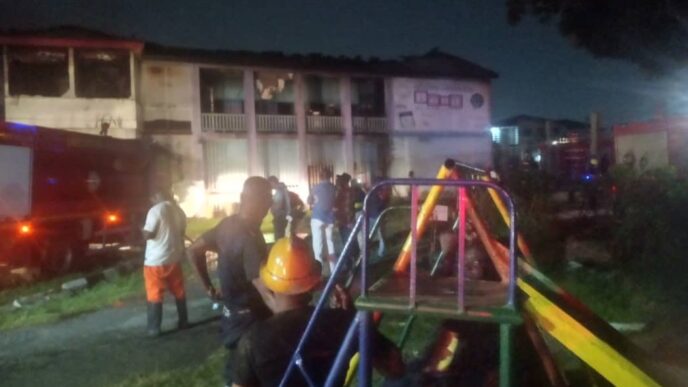File photo of a soldier during an operation in the north-east
The Civil Society Legislative Advocacy Centre (CISLAC) has called for the institutionalisation of the Early Warning and Early Response (EWER) system to address security threats in Nigeria.
Auwal Rafsanjani, CISLAC’s executive director, conveyed the group’s demand in Lagos on Thursday.
Rafsanjani, who was represented by Abubakar Jimoh, the organisation’s head of communication, harped on the importance of timely response to prevent socio-political crises and enhance public safety.
He noted that poor logistics, inter-agency rivalry, and inadequate technology for information gathering, have been clogs in the wheel of Nigeria’s security architecture.
Advertisement
“The evolving epidemic of multidimensional security threats in Nigeria underscores the urgent need for proactive measures,” Rafsanjani said.
“Early warning systems must involve meaningful engagement with at-risk communities, policymakers, and security agencies.”
‘COLLABORATION CRITICAL’
Advertisement
The executive director said CISLAC’s engagements across Nigeria revealed that systemic challenges undermine conflict prevention efforts.
He noted that these challenges include poor remuneration and low morale among response personnel, as well as the lack of data protection for reported signals, which often leads to reprisal attacks.
He also noted rising drug abuse among youths, porous borders that enable illegal arms trafficking, and sensational media reporting that fuels social instability.
He emphasised the need for robust conflict prevention strategies through improved coordination among response agencies and enhanced transparency in security funding.
Advertisement
Addressing the root causes of ethnic and social conflicts, he said, is critical to lasting peace.
Rafsanjani recommended adopting modern technology for data protection and increasing funding for response agencies.
He also called for community-driven intelligence gathering and gender-sensitive approaches to policy planning to address systemic challenges.
He urged the media to adopt conflict-sensitive reporting as it shapes public perception and policy.
Advertisement
“Effective early warning systems depend on accurate information gathering, professional reporting, and collaboration among stakeholders,” Rafsanjani said.
Advertisement
Add a comment












